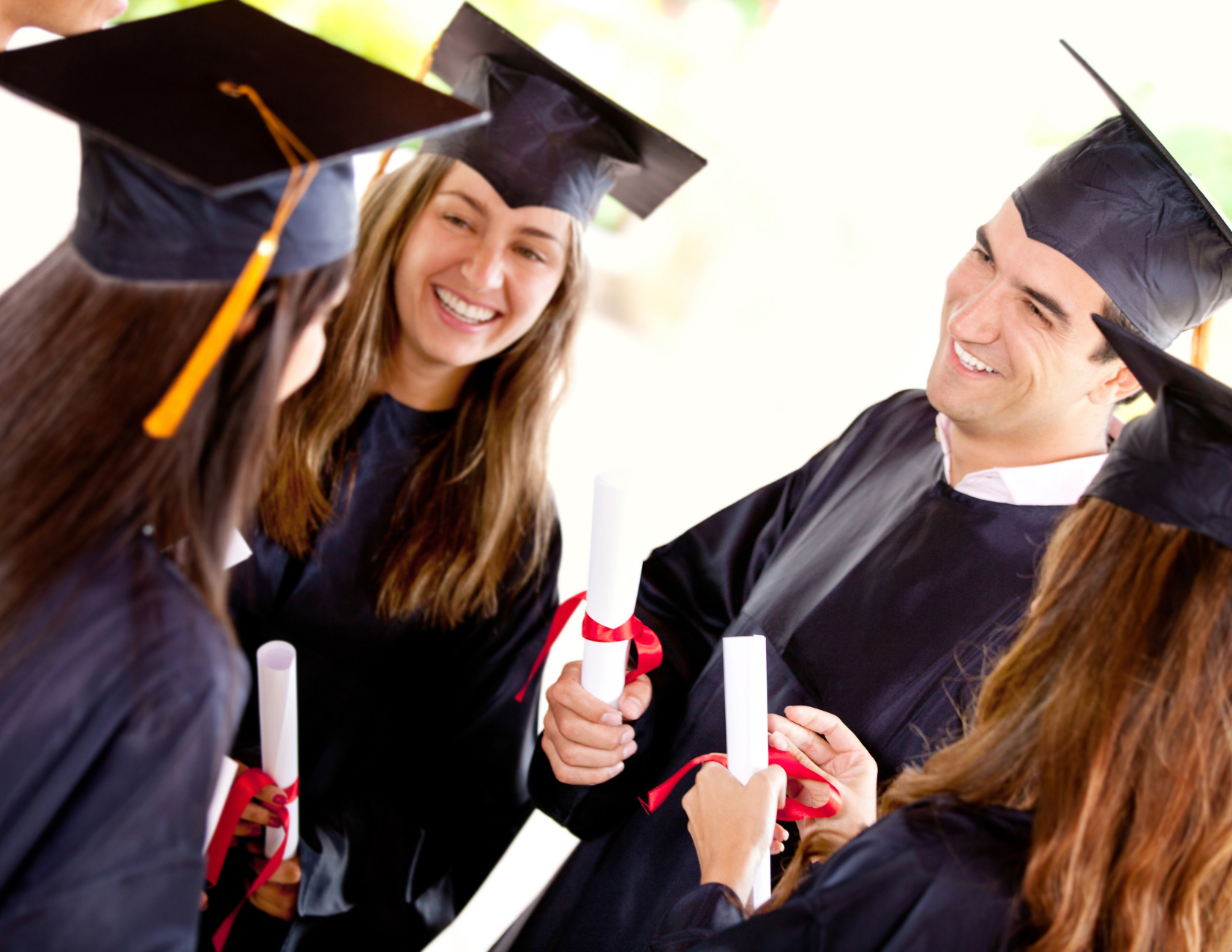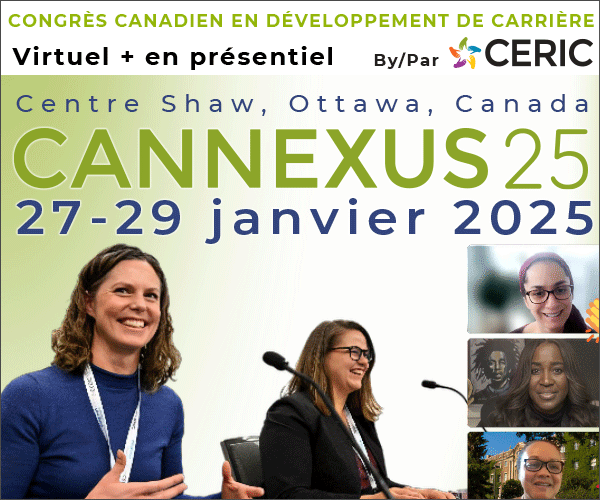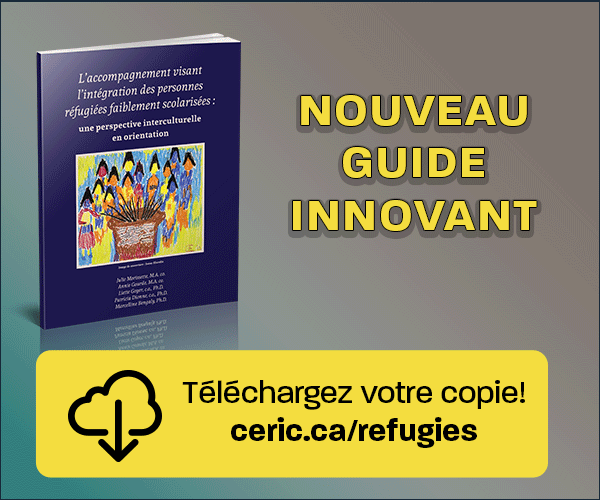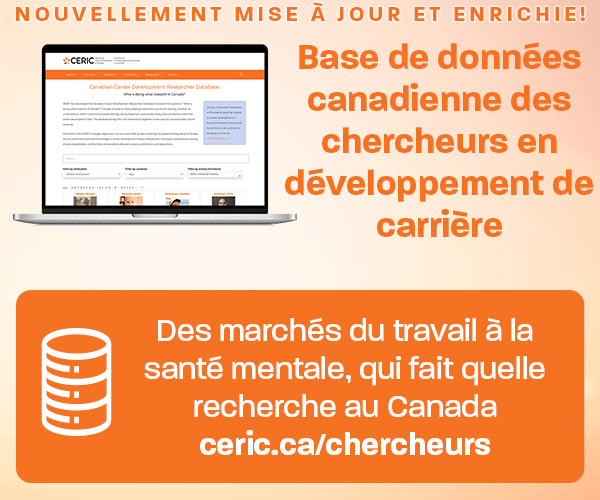Préparer les étudiants de premier cycle au monde du travail de demain : perfectionnement des compétences de base grâce aux occasions d’apprentissage par l’expérience
Mots-clés :
Experiential learning, model of core competency, career development, undergraduate educationRésumé
The rapid evolution of today’s workplace requires employees to possess a diverse set of sophisticated cognitive and psychological competencies, thus prompting post-secondary institutions to reconsider not only what is taught but why and how. Our paper proposes a three-faceted model of core competencies that undergraduate students can develop through participation in experiential learning (EL). We describe three EL opportunities at Mount Saint Vincent University that engage students in authentic experiences and encourage critical reflection: service learning (SL) in the Department of Psychology, co-operative education in the Bachelor of Public Relations (BPR) program, and a co-curricular recognition program (CCR) in Career Services. We also provide supporting evidence that EL facilitates the development of core competencies and career readiness. We conclude with recommendations that may help post-secondary institutions better prepare students for the competency-based workforce of tomorrow.
Références
Academic Plan: Mount Saint Vincent University. (n.d.). Retrieved from http://www.msvu.ca/site/
media/msvu/AcademicPlan.pdf
Association for Experiential Education. (n.d.). What is experiential education? Retrieved from http://www.aee.org/what-is-ee
Association of American Colleges and Universities. (2018). High-impact educational practices. Retrieved from http://www.aacu.org/leap/hips
Atkins, S., & Murphy, K. (1993). Reflection: A review of the literature. Journal of Advanced Nursing, 18(8), 1188-1192.
Boud, D., Keogh, R., & Walker, D. (1985). What is reflection in learning? In D. Boud, R. Keogh, & D. Walker (Eds.), Reflection: Turning experience into learning (pp. 7-17). London, UK: Kogan Page.
Campbell, C., & Dutton, P. (2015). Career crafting the decade after high school: Professional’s Guide. Toronto, ON: Canadian Education and Research Institute for Counselling.
Campbell, C., & Ungar, M. (2008). The decade after high school: A professional’s guide. Toronto, ON: Canadian Education and Research Institute for Counselling.
Celio, C. I., Durlak, J., & Dymnicki, A. (2011). A meta-analysis of the impact of service-learning on students. Journal of Experiential Education, 34(2), 164-181.
Coker, J. S., & Porter, D. J. (2016). Student motivations and perceptions across and within five forms of experiential learning. Journal of General Education, 65(2), 138-156.
Council for the Advancement of Standards in Higher Education. (2015). CAS learning and development outcomes. In J. B. Wells (Ed.), CAS professional standards for higher education (9th ed.). Washington, DC: Author.
de Villiers Scheepers, M. J., Barnes, R., Clements, M., & Stubbs, A. J. (2018). Preparing future- ready graduates through experiential entrepreneurship. Education + Training, 60(4), 303-317.
Deller, F., Brumwell, S., & MacFarlane, A. (2015). The language of learning outcomes: Definitions and assessments. Toronto, ON: Higher Education Quality Council of Ontario.
Dweck, C. S. (2006). Mindset: The new psychology of success. New York, NY: Random House.
Edge, J., Martin, E., & McKean, M. (2018). Getting to work: Career skills development for social sciences and humanities graduates. Ottawa, ON: The Conference Board of Canada.
Elias, K., & Drea, C. (2013). The co-curricular record: Enhancing a postsecondary education. College Quarterly, 16(1), 1-8.
Elon University Center for Engaged Learning. (2014). Faculty change towards high-impact pedagogies. Elon, NC: Author. Retrieved from http://www.centerforengagedlearning.org/faculty-change-towards-high-impact-pedagogies/
Eyler, J., Giles, D. E. Jr., Stenson, C. M., & Gray, C. J. (2001). At a glance: What we know about the effects of service-learning on college students, faculty, institutions and communities, 1993-2000: Third Edition. Higher Education, Paper 139. Retrieved from http://digitalcommons.unomaha.edu/slcehighered/139
Finch, D. J., Hamilton, L. K., Baldwin, R., & Zehner, M. (2013). An exploratory study of factors affecting undergraduate employability. Education + Training, 55(7), 681-704.
Fisher Turesky, E., & Gronich Mundhenk, L. (2008). Going beyond traditional career development theories: Individualizing counseling using cognitive stage and experiential
learning theories. Canadian Journal of Career Development, 7(2), 3-7.
Gottfredson, L. S. (1981). Circumscription and compromise: A developmental theory of occupational aspirations. Journal of Counseling Psychology, 28(6), 545-579.
Hart, J. (2013). Employer responses to the co-curricular record. Peterborough, ON: Trent University. Retrieved from http://www.sfu.ca/content/dam/sfu/deangradstudies/ProfessionalDevelopment/
Employer%20Responses%20to%20the%20Co-Curricular%20Record%20-%20Report.pdf
Holland, J. L. (1959). A theory of vocational choice. Journal of Counseling Psychology, 6, 35-44.
Kenedy, R. A., & Young, D. (2016). Canadian and international peer leader experience: Theoretical and research based perspectives. Presented at the 2016 35th Annual Conference on the First-Year Experience, Orlando, Fl.
Kilgo, C. A., Ezell Sheets, J. K., & Pascarella, E. T. (2015). The link between high-impact practices and student learning: Some longitudinal evidence. Higher Education, 69, 509- 525.
Kolb, A. Y., & Kolb, D. A. (2005). Learning styles and learning spaces: Enhancing experiential learning in higher education. Academy of Management Learning & Education, 4(2), 193-212.
Kolb, D. A. (1984). Experiential learning: Experience as the source of learning and development. Englewood Cliffs, NJ: Prentice-Hall.
Kramer, M., & Usher, A. (2011). Work-integrated learning and career-ready students: Examining the evidence. Toronto, ON: Higher Education Strategy Associates.
Krumboltz, J. D. (2009). The happenstance learning theory. Journal of Career Assessment, 17(2), 135-154.
Kuh, G. D. (2008). High-impact educational practices: What they are, who has access to them,
and why they matter. Washington, DC: Association of American Colleges and Universities.
Kuh, G. D. (2016). Making learning meaningful: Engaging students in ways that matter to them. New Directions for Teaching and Learning, 145, 49-56.
Laurier introduces new tool that tracks student's extra-curricular activities. (2018, December 4).
Waterloo Chronicle. Retrieved from https://www.therecord.com/news-story/9066360-laurier-introduces-new-tool-that-tracks-student-s-extra-curricularactivities/?utm_source=academica+top+ten&utm_campaign=c4a807c0d4-email_campaign_2018_12_05_04_27&utm_medium=email&utm_term=0_b4928536cf-c4a807c0d4-51891533
Lee, N. E. (2018). Skills for the 21st century: A meta-synthesis of soft-skills and achievement. Canadian Journal of Career Development, 17(2), 73-86.
Man-Nor Hoi, M., & Hiebert, B. (2005). Career development of first-year university students: A test of Astin’s career development model. Canadian Journal of Career Development, 4(2), 22-31.
Mitchell, L. K., & Krumboltz, J. D. (1996). Krumboltz’s learning theory of career choice and development. In D. Brown, & L. Brooks (Eds.), Career choice and development (3rd ed). San Francisco, CA: Jossey-Bass.
Moon, J. (2005). Guide for busy academics No. 4. Learning through reflection. The Higher Education Academy, ESCalate. Retrieved from http://nursingmidwifery.tcd.ie/
assets/director-staff-edu-dev/pdf/Guide-for-Busy-AcademicsNo1-4-HEA.pdf
Paul, J., & Bowering, E. (2018, October). Does Service Learning increase empathy in Introductory Psychology students? Poster presented at the International Society for the Scholarship of Teaching and Learning, Bergen, Norway.
Rasoal, C., Eklund, J., & Hansen, E. M. (2011). Toward a conceptualization of ethnocultural empathy. Journal of Social, Evolutionary, and Cultural Psychology, 5(1), 1-13.
Royal Bank of Canada. (2018). The coming skills revolution. Humans wanted: How Canadian youth can thrive in the age of disruption. Retrieved from http://www.rbc.com/
dms/enterprise/futurelaunch/_assets-custom/pdf/RBC-Future-Skills-Report-FINAL-Singles.pdf
Schaller, M. A. (2005). Wandering and wondering: Traversing the uneven terrain of the second college year. About Campus, 10(3), 17-24.
Schwartz, B. M., Gregg, V. R., & McKee, M. (2018). Conversations about careers: Engaging students in and out of the classroom. Teaching of Psychology, 45(1), 50-59.
Smith, P., & Lam, M. (2013). 2013 Campus recruitment report educator summary. Canadian Association of Career Educators and Employers. Retrieved from http://www.cacee.com/
_Library/Campus_Recruitment_Docs/2013_CACEE_Campus_Recruitment_Report_-_Career_Educator_Summary.pdf
Stirling, A. E., & Kerr, G. A. (2015). Creating meaningful co-curricular experiences in higher education. Journal of Education & Social Policy, 2(6), 1-7.
Super, D. E. (1953). A theory of vocational development. American Psychologist, 8(5), 185-190.
Universities Canada (2014). Internalization at Canadian universities: Quick facts. Retrieved from https://www.univcan.ca/universities/facts-and-stats/internationalization-at-canadian-universities-quick-facts/
University profile. (n.d.). Retrieved from https://www.msvu.ca/en/home/aboutus/
universityprofile/default.aspx
Wessels, W. J., & Pumphrey, G. (1996). The impact of cooperative education on wages. Journal of Cooperative Education, 32, 36-51.
Yorio, P. L., & Ye, F. (2012). A meta-analysis on the effects of service-learning on the social, personal, and cognitive outcomes of learning. Academy of Management Learning & Education, 11(1), 9-27.
You, Z., & Rud, A. G. (2010). A model of Dewey's moral imagination for service learning: Theoretical explorations and implications for practice in higher education. Education and Culture, 26(2), 36-51.
Zegwaard, K. E., & Coll, R. K. (2011). Using cooperative education and work-integrated education to provide career clarification. Science Education International, 22, 282-291.

Téléchargements
Publié-e
Comment citer
Numéro
Rubrique
Licence
(c) Tous droits réservés REVUE CANADIENNE DE DÉVELOPPEMENT DE CARRIÈRE 2020

Cette œuvre est sous licence Creative Commons Attribution - Pas d'Utilisation Commerciale - Pas de Modification 4.0 International.











